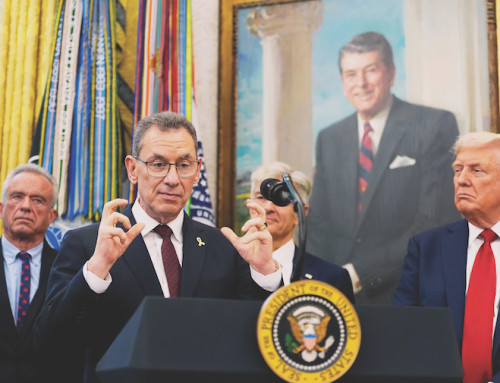NEW YORK (AP) — Walmart earlier this week said that it plans to remove synthetic food dyes and 30 other ingredients, including some preservatives, artificial sweeteners and fat substitutes, from its store brands sold in the United States by January 2027.
Walmart said its goal would affect about 1,000 products, including salty snacks, baked goods, power drinks, salad dressings and frosting.
Several of the ingredients on Walmart’s removal list, however, already are banned, not widely used or have not been used in the U.S. food supply for decades.
Others were included despite no known problems or have been targeted by the Trump administration for review and possible elimination as an approved food additive, according to food safety researchers.
Still, the action represents a “sweeping declaration and a considerable response to consumer demand and sentiment” for fewer additives in food, said Brian Ronholm, director of food policy for the advocacy arm of Consumer Reports.
“This is a good and well-thought-out list and represents a very positive step, especially considering the reach their private label brands have in U.S. households,” Ronholm said in a statement.
Walmart said the 14-month reformulation plan primarily would involve its largest private-label food brand, Great Value.
Customers also can expect changes in Walmart’s Marketside and Freshness Guaranteed lines of prepared foods and, to some extent, in its premium label Bettergoods products, the company said.
In recent months, major food companies such as Kraft Heinz, Nestle and Conagra Brands have pledged to eliminate petroleum-based synthetic dyes in coming years.
Walmart took its news a step further by identifying other kinds of food additives in its phase-out timeline.
The chemicals and compounds the discount retailer intends to eliminate encompasses the breadth of food manufacturing.
For example, Walmart’s list includes potassium nitrate, potassium nitrite and potassium bisulfite, which are used as preservatives in processed meats, as well as the artificial sweeteners advantame and neotame.
Many of the items on Walmart’s list have raised concerns about potential health effects “for a long time,” said Thomas Galligan, a scientist who focuses on food additives for the Center for Science in the Public Interest, an advocacy group.
Those include synthetic dyes, titanium dioxide, azodicarbonamide, propylparaben, potassium bromate and phthalates, a chemical used to make plastic flexible.
Health advocates have argued that phthalates in plastic wrap, plastic packaging and plastic bottles can end up in food and beverages.
The U.S. Food and Drug Administration has limited, but not ended, their use in items that come into contact with food.
Some of the 11 artificial food dyes detailed by Walmart were already banned, proposed to be banned or haven’t been used for years, including Red No. 4, Red No. 3, Citrus Red No. 2 and Orange B.
The retailer also listed simplesse, a fat substitute that was phased out of the nation’s food market in 2023, and synthetic trans fatty acids, or trans fats, which the FDA effectively phased out the same year by determining that partially hydrogenated oils no longer were recognized as safe.
Researchers said some of Walmart’s choices were surprising.
Ronholm said he was not aware of problems related to toulene, anisole or morpholine, three other additives Walmart plans to eliminate from its foods.
Center for Science in the Public Interest President Peter Lurie questioned the inclusion of talc on the retailer’s list. Galligan said his agency considers advantame and neotame “to be safe.”
Overall, though, the initiative struck Galligan as a good commitment.
“However, as with any voluntary effort, it is very easy for Walmart to make bold promises, but it is a lot harder for them to follow through,” he said. “Many companies, including Walmart, have previously made
and then broke promises similar to this, so until we see reformulated products on store shelves, this is all just talk.”








